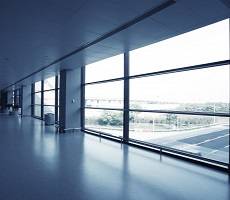June 25, 2013
US corporate occupiers changing the size and type of office space they demand
America’s corporate occupiers are not only reducing the amount of office space they use, they are changing their requirements too according to the latest Office Occupier View report from CBRE. Not only did overall demand for commercial space fall during the first quarter of 2013 compared to the last of 2012, the average amount of space allocated to each worker is falling below 225 sq.ft. (21 sq.m.) , and occupiers are demanding more open, ‘creative’ working environments in Class A buildings with large floor plates. Occupiers are also looking for space that is ideally located in central business districts (CBDs) with easy access to transport links and amenities and offers them flexible terms.
















June 10, 2013
NeoCon and ThinkFM offer two different views of the facilities management elephant
by Mark Eltringham • Comment, Facilities management, Furniture, Workplace design
This week sees two events taking place on opposite sides of the pond that should hold a mirror up to the way we currently design and manage workplaces. In Chicago, it’s time for NeoCon, the annual office furniture behemoth held in the vast Merchandise Mart and attracting some 40,000 visitors, while in London it’s the distinctly low-key Think FM conference from the BIFM held at the Royal College of Physicians – for today only, as they say. While these are two very different events in terms of scale, content and format and both are nakedly commercial, only one strikes me as particularly meaningful. And even that is only about the meaning of one part of the facilities management elephant.
(more…)